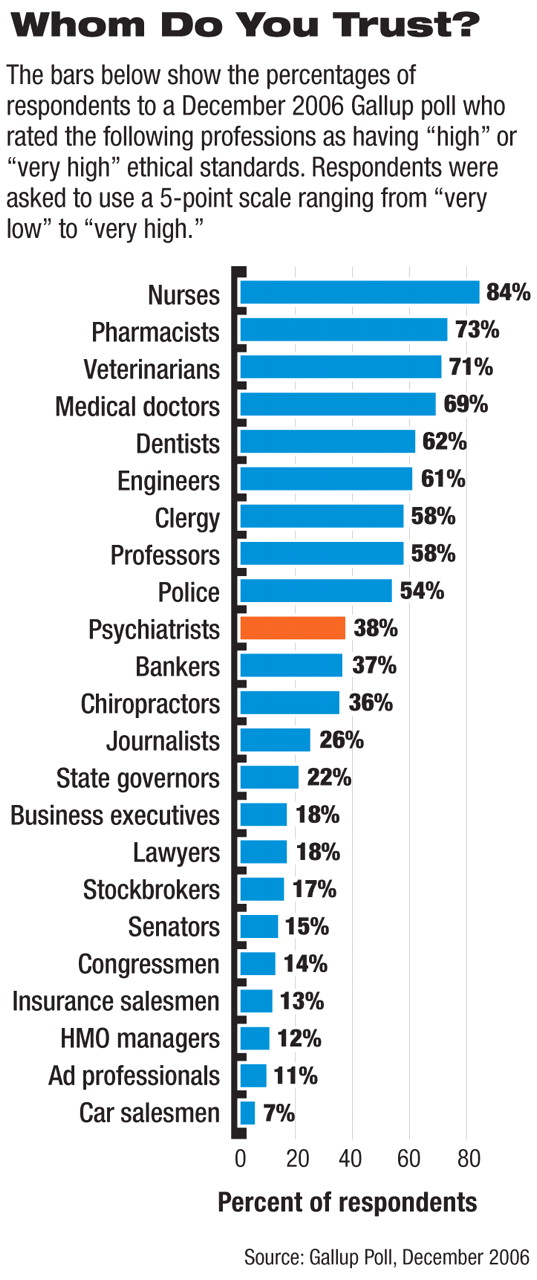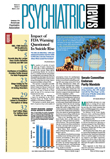Only 38 percent of Americans believe that psychiatrists adhere to“ high” or “very high” ethical standards, according to an annual Gallup poll conducted last December. The survey indicated that the public places most of its trust in other types of health professionals.
Nurses were ranked the most ethical professionals, with 84 percent of those polled rating nurses' ethical standards as “high” or “very high,” and pharmacists ranked second (73 percent).
When asked about the ethical standards of psychiatrists, the majority of respondents rated psychiatrists' honesty and ethical standards as“ average” (42 percent) or “low” or “very low” (12 percent).
The results are based on telephone interviews conducted from December 8-10, 2006, with 1,009 adults. Gallup staff implements random-digit dialing to reach a representative sample of Americans.
Nurses have held the top position on the survey for all but one of the eight years they have been included in the survey. According to Gallup trend data, the one exception was 2001, when firefighters were included on the list shortly after the September 11 terrorist attacks and held the top position.
Medical doctors in general were ranked fourth on the list of the most trustworthy professionals, just behind veterinarians; 69 percent of the public rated physicians' ethical standards as “high” or “very high.”
The public's trust in medical doctors has risen steadily since 1992, according to trend data, when only 52 percent of the public gave the highest ratings to physicians' ethical standards.
Psychiatrists were the only medical specialists listed in the poll separately from “medical doctors.” Psychiatrists were first included as a distinct category in the 2003 survey and got the same ranking then as in the current poll.
According to Deborah Cross, M.D., chair of APA's Committee on Public Affairs, the poll is designed in such a way that it reinforce negative stereotypes and misconceptions that the public may hold about psychiatrists.
“By asking about psychiatrists separately [from other medical doctors], the poll implies that psychiatrists are not medical doctors,” she pointed out.
Regarding the relatively low endorsement of psychiatrists' ethical standards by the public, Cross noted that the poll findings should reinforce one of APA's priorities: “to educate the public about who we are and what it is that we do” as psychiatrists.
“It is important that the public understand that psychiatrists are medical doctors who are charged with the treatment of medical illnesses and who utilize treatments that work,” she added.
Gallup said that the margin of sampling error for the survey results at a 95 percent confidence interval is plus or minus 3 percentage points.
The results of the 2006 Honesty and Ethics in Professions Poll can be accessed at<www.galluppoll.com> for a fee. ▪

